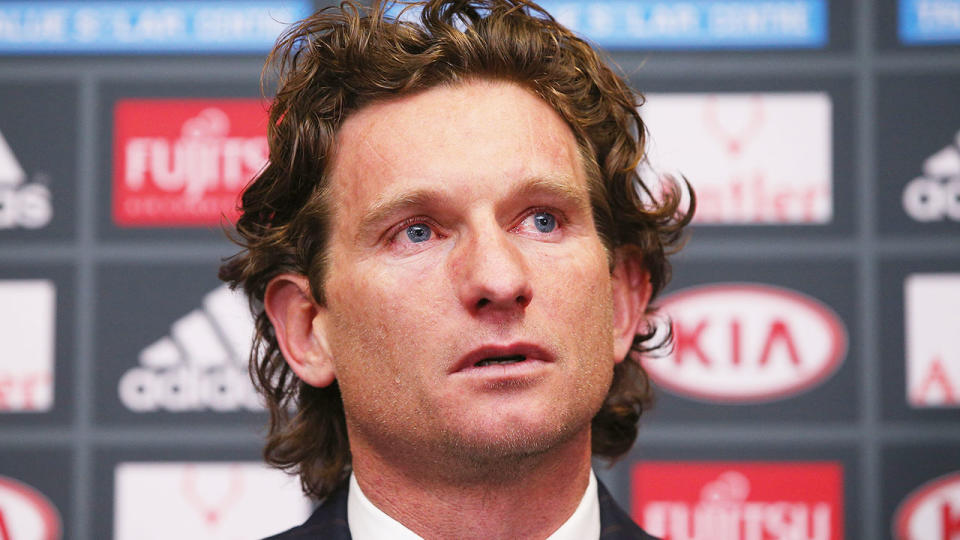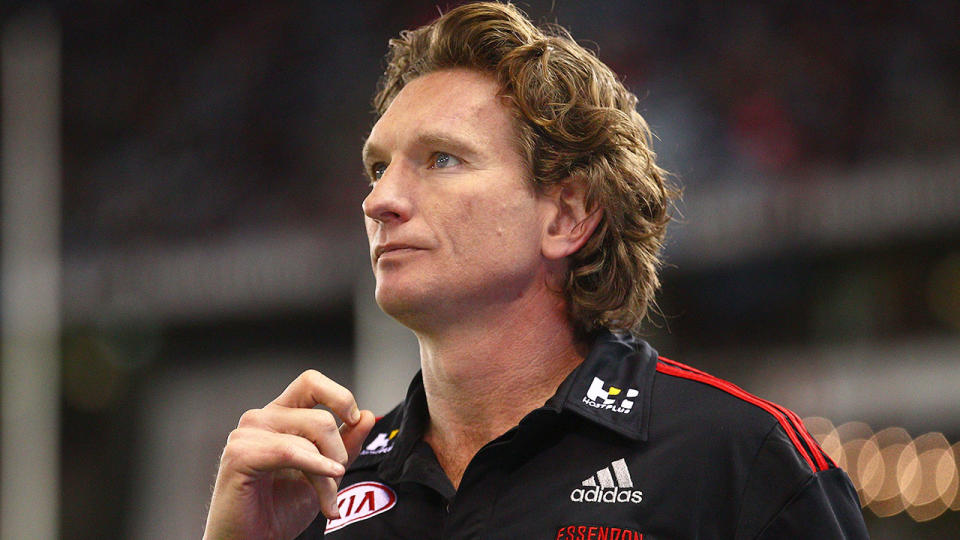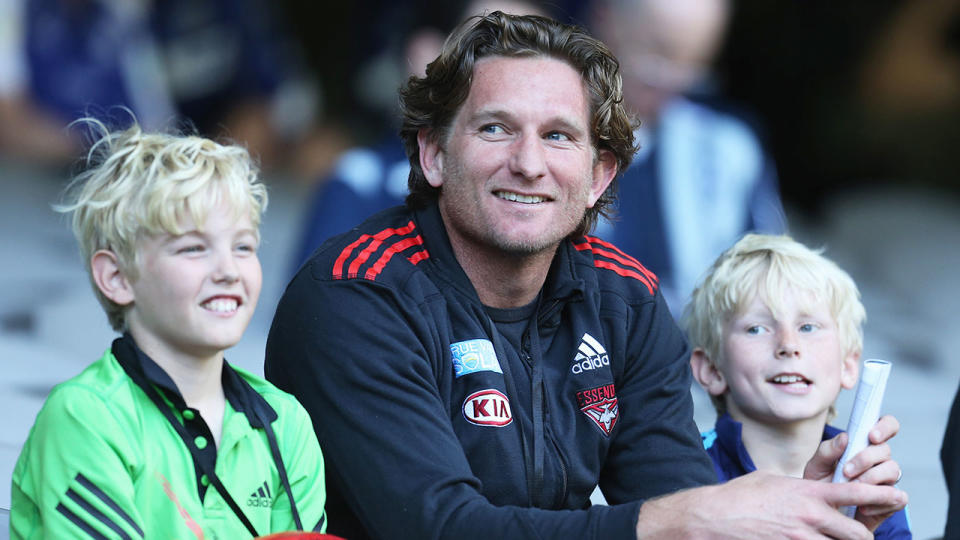'Crying on the ground': James Hird's sad mental health revelation

Essendon legend James Hird says a phone call to a mental health organisation in 2015 helped him get through a dark period after his retirement from footy.
Like many professional athletes, Hird found the transition from full-time AFL star to life after footy extremely challenging.
'NOT BASED IN FACT': David Koch fires back at Eddie McGuire
TAKE A BOW: Naitanui's perfect response to 'all lives matter' furore
'TAKES SOME BALLS': Star's bold stand against racism praised
Even before the five-time All-Australian stepped into coaching after calling time on his playing career in 2007, he admits going through a painfully dark period of his life.
The 47-year-old opened up to good friend and fellow AFL great Shane Crawford as part of a health and wellbeing campaign, admitting that he found himself “crying on the ground” in his kitchen in the period after his playing days ended.
"I thought I would transition out of footy and into this business (a venture he was part of) and I wasn't going to miss it," he said.
"I remember sitting on my kitchen floor and everyone's gone to bed, my wife's upstairs, the kids are in bed, and I am sitting there, just crying on the ground.
"You're just grieving (for) this life you had.
"As much as I was glad to retire because I'm sick of being sore… there was this grieving process."
By 2015, Hird's life had taken an even more challenging twist after becoming embroiled in the Essendon supplements scandal and being suspended from his role of head coach.
It was during that particularly dark and uncertain period that Hird decided to call Beyond Blue - a decision that helped turn his life around.
"I was sitting in the car and had some shocking thoughts about what was next," Hird said.

"I remembered Beyond Blue was the number the club, that the AFL had always talked about... Within 30 seconds a guy was on the other end of the phone. I still don’t know who the guy is.
"I said, 'Mate, this is how I feel. I feel like I can't go on. I've brought shame to my family, shame on my football club, my profession. I've lost my identity’.
"He just started talking to me and said, 'Where do you live?'
"I said, "I live about 15 or 20 minutes from here.
"He said, "You think you can drive yourself home? I'll talk to you, but just drive home'."
"This is an hour I was talking to him. I started the car and was talking to him. By the time I got home, there's a special unit from the Alfred Hospital waiting outside my front door. He didn't know my name. It wasn't about me or football.
How Hird’s perfect life collapsed
Hird remembers turning 40 in 2013 and reflecting on all he’d achieved during his career and in his professional life - marrying his wife Tania and having four children together.
"I woke up in the morning, went for a run and literally had the thought 'I've just had a great life'. I played for the club I wanted to play at, been successful, got a job I wanted, married the most perfect woman in the world and had four kids.
"Life doesn't get much better. That was maybe seven o'clock in the morning.
"By two o'clock in the afternoon … the president (the now-departed David Evans) came into my office and basically said: 'The AFL thinks we're guilty of giving the players performance enhancing drugs, what do you think?'. I'm like, 'What do you mean, 'what do I think?' We definitely haven't been doing it. I don't know what you're talking about?'
"Then it just snowballed from there... we set off a train that basically ended up with the players being found not guilty initially, suspended for a year in 2016.
“Literally, it was far and away the worst time in my life, but by far and away the worst time – more importantly – in 34 players' lives and a lot of good people in football."
Toll on Hird’s family was enormous
Hird admits that his axing as Bombers coach filled him with a sense of helplessness that took quite some time to overcome and the toll it had on his family was massive.
The 47-year-old says during the height of the scandal there would often be between 10 and 50 members of the media camped outside his house.
"It came to a point midway through (2013) where … the kids would stand at the glass window and they'd basically say to me: 'Dad, you're going to have a good day' or 'You're going to have a bad day'.
“They were right in the middle of it. The boys got a few punches thrown at the supermarket and a lot of abuse.

"I really felt for my wife because she was trying to hold our family together. She's a very proud person and also very defensive of me because she obviously saw me going through a lot.
"Every day you wake up and go 'all right, I've got to deal with this. I've got to work through it and one day this will finish’.
"And fortunately it did."
Hird says his own experience has helped him understand the bigger picture and educate others to seek the same help that saved him.
"Mental health in society is a huge issue. I think part of my story might be relevant to other people. Everyone has their own different story and if people want to listen to mine, if they can get something out of it, that's great.
"When your relationships with people you care for are tested, when you don't get the job you wanted, or you want to earn more, it's nowhere near as bad as what (you think) it was."
"It's OK if you slip off (routine) sometimes, so long as you get back on. Just take little pieces every day, in exercise, in diet, in health, in mental wellbeing, that's the way to start and you never know where you can end up.
Readers seeking support and information about suicide prevention can contact Beyond Blue on 1300 22 4636, Lifeline on 13 11 14 or Suicide Call Back Service 1300 659 467.

